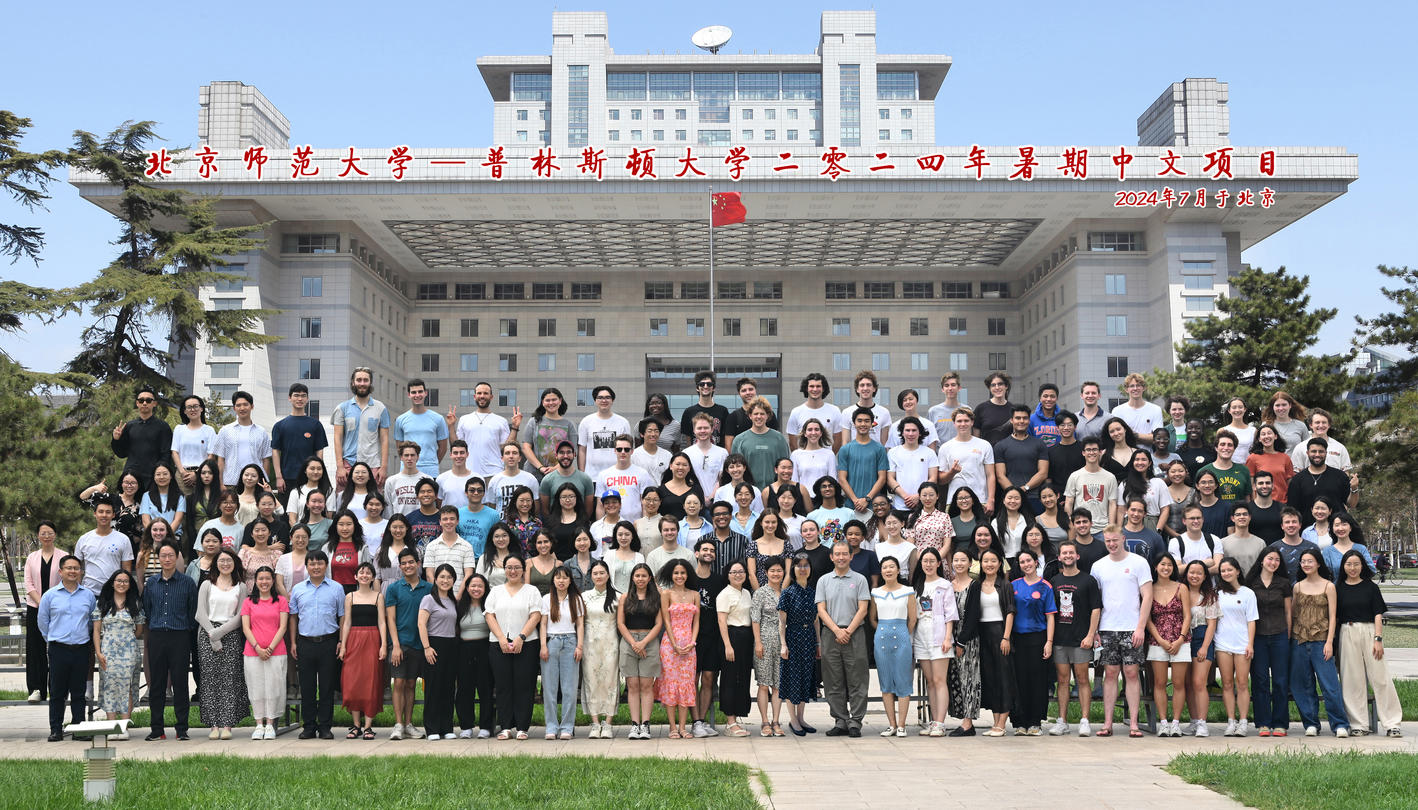Language and Legacy: Celebrating 30 years of Princeton in Beijing

Story was originally published in the 2024 edition of Princeton University’s international magazine, Princeton Int'l.
In summer 2024, the Princeton in Beijing (PiB) summer language program made its highly anticipated return to in person instruction in China post COVID and celebrated its 30th anniversary. Since 1993, PiB has offered 4,500 students from Princeton University and around the world the chance to master Mandarin in a real-world learning environment and has trained nearly 1,700 Chinese language teachers using language-teaching techniques pioneered by co-founder Chih-p’ing Chou, professor emeritus of East Asian studies.
Amid ongoing U.S.-China geopolitical tensions, programming in China gives students an invaluable opportunity to spend meaningful time in the country and experience its complexities firsthand. “These programs help students develop practical language skills and cultural awareness — qualities that are vital for becoming responsible and informed global citizens,” says Jing Wang, director of PiB and the Chinese Language Program on campus.
Hosted at one of China’s premier institutions of higher learning, Beijing Normal University, PiB uses a total immersion approach: eight weeks of rigorous coursework prioritizing accuracy in pronunciation and grammar, components necessary for true fluency. Students pledge to speak only Mandarin for the duration of the program, within and outside of the classroom.
For Jessica Wei ’27, participation in PiB was motivated by a personal goal of being able to fluently communicate with her Chinese relatives. “The improvement in my Mandarin language skills was beyond anything I could have had elsewhere,” she said. “I was able to tell stories about my time in Beijing and describe events in detail to my family without stuttering.” Students also engage in cultural activities — like calligraphy, painting and tea-tasting sessions — and participate in excursions to historical and cultural sites such as Jingshan Park and, most notably, the Great Wall of China. “To stand on the very spot that contained thousands of years of history and look out into a landscape with a breathtaking view was truly indescribable,” Wei said.
Dean Minello ’27’s most memorable experience happened unexpectedly, with his classmates in one of Beijing’s famed hutong restaurants. “We stayed for three hours, making friends with the other customers and the restaurant owner, learning about Chinese eating and drinking customs while practicing Mandarin.”
Participating in the program reinforced the importance of fostering open dialogue and collaboration between the U.S. and China, said Minello. “The more we embrace the possibility of openness in China, the more likely we are to find common ground on the global stage.”
Celebrating the past, looking to the future
On July 14, PiB celebrated its anniversary milestone at Beijing Normal University. Instructors, alumni and representatives from Princeton and other American and Chinese institutions gathered for a day of commemorative speeches reflecting on the achievements of the program. Chou was recognized for creating a superior model for Chinese-language instruction in the U.S. and fostering educational collaboration.
Chou emphasized that the program’s driving force was twofold: to enable students to achieve rapid improvement in their Chinese proficiency and, more importantly, to “develop a respect and affection for China, the Chinese people, the Chinese language and writing system and Chinese history and culture.”
Rory Truex ’07 was a member of the program’s cohort in 2004. Today, he is associate professor of politics and international affairs at Princeton and a leading expert on Chinese politics. “It turned out to be a formative summer in my life, leading me down the path of teaching and writing about China,” he said. “Programs like Princeton in Beijing cultivate the next generation of China experts and allow our students to see China with their own eyes.”
